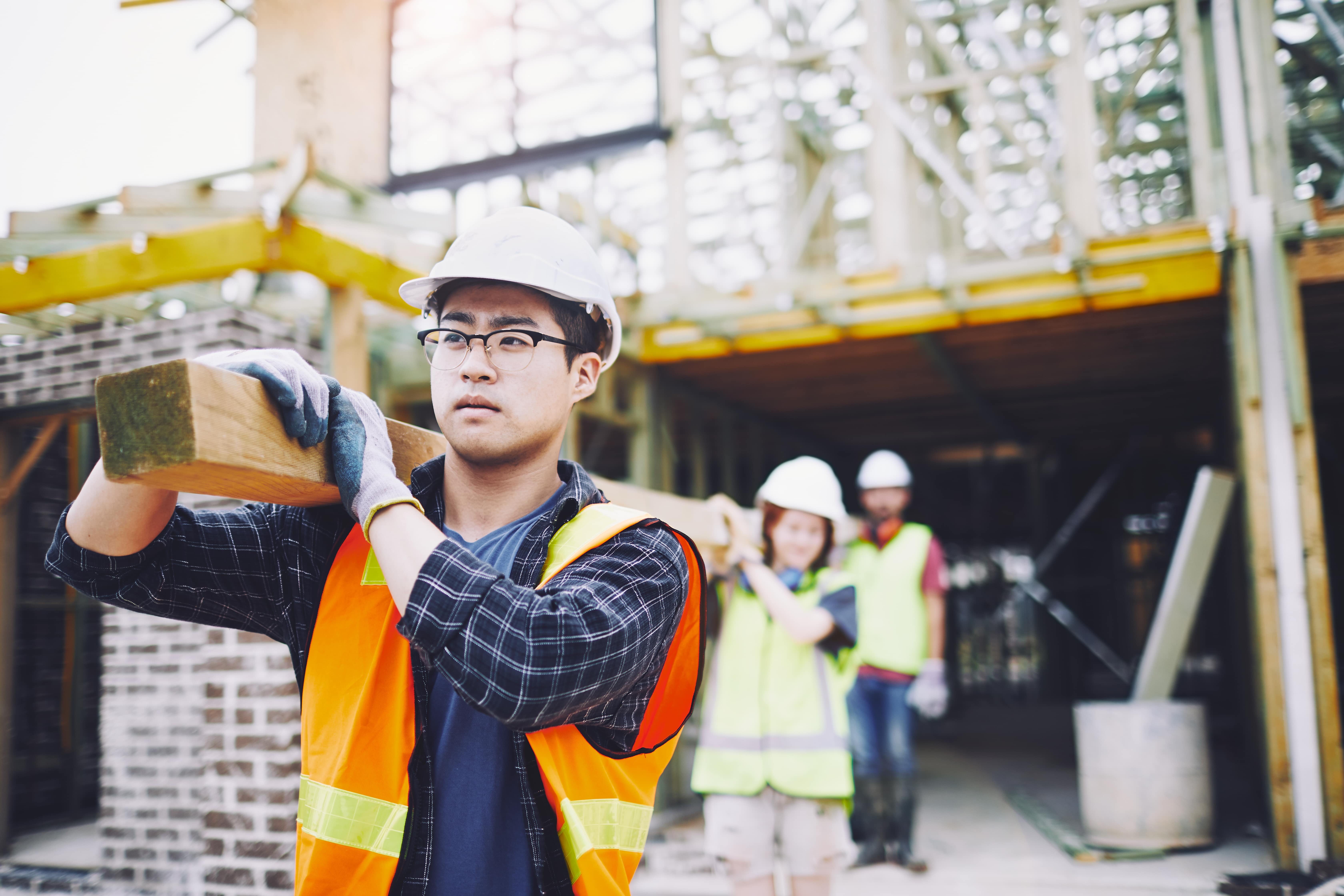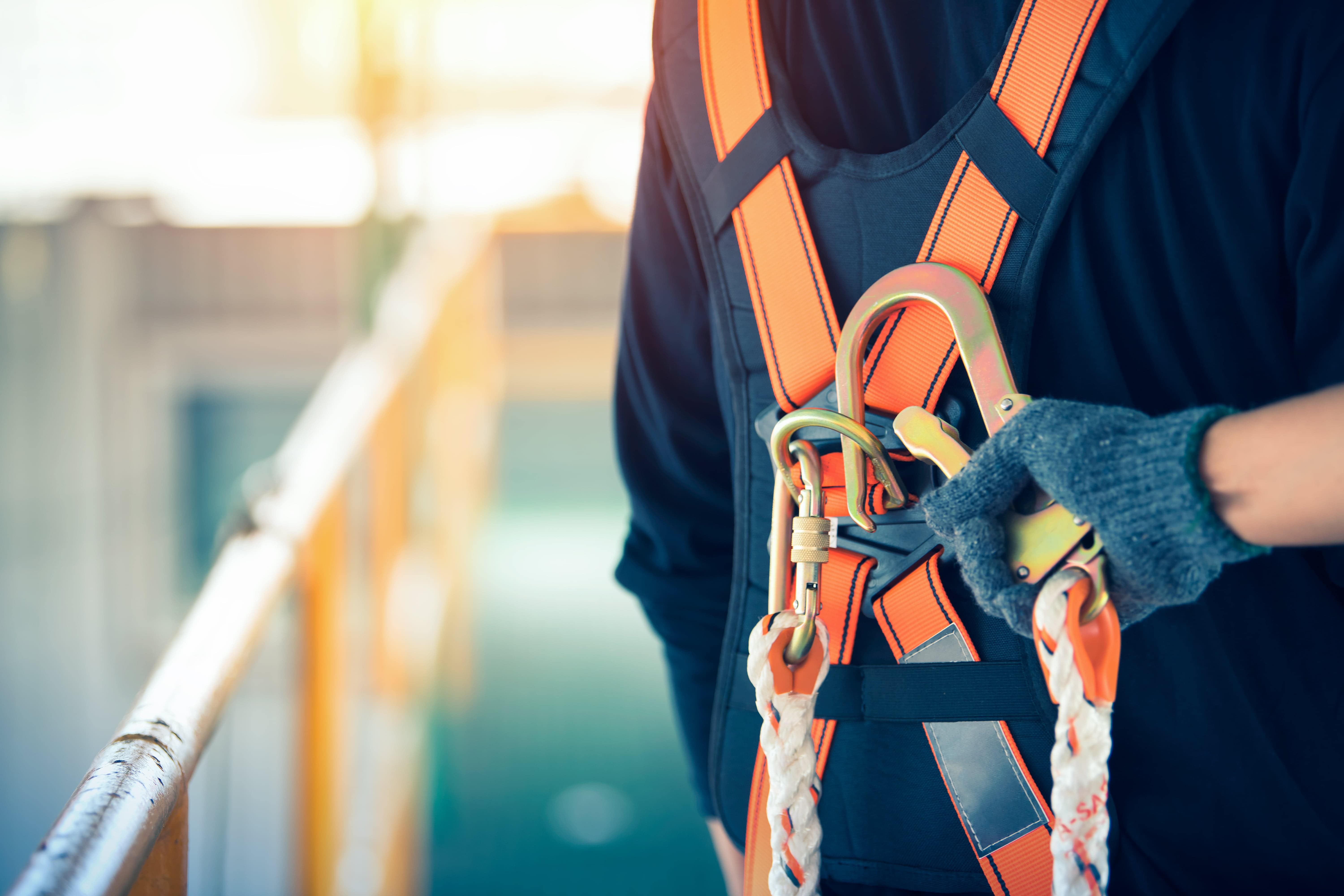High safety standards are critical to worker health, the majority of the 8,000 construction injuries in NSW each year, could have been prevented with the right safety practice. At Elliam, we are committed to worker safety, our rigorous safety standards, mean our safety track record is one of the best in the industry.
To fully integrate safety into day-to-day work practices, Elliam’s Project Managers also work in the role of Safety Managers, applying a comprehensive approach to safety practices including best practice training, tools and policies. This approach includes safety management, safety education, worker well-being, skill specific safety, and more effective safety management through a hierarchy of control.

Elliam’s safety practices, tools and policies
Elliam’s safety practices, tools and policies are designed to optimise risks mitigation. We conduct regular safety audits which assess, report and manage any possible risks
Safety Management
- Effective safety management - Safety Managers supervise workers to ensure each worker adheres to proper safety procedures. Elliam’s Safety Managers achieve better safety outcomes by integrating direct safety instruction into each worker’s daily goals and activities. This instruction typically includes hazard identification and assessment, prevention, and control.
- Preparatory safety briefings - It is the responsibility of every Elliam’s Safety Manager to ensure that each worker is informed of the safety risks before they set foot on a specific construction site.
- Safety plans personalised to worker needs – Ellliam’s workers refresh their safety knowledge with regular training based upon a personalised safety education plan, which recognises their level of experience and specific skillset.
- Safety Documentation – To oversee site safety, Elliam rigorously documents all proposed safety practices to be implemented on the site. This is updated as safety needs change across the project’s lifespan. A safe work method statement SWMS is prepared for all high-risk construction projects before work commences.
- Safety related registrations and licenses – Safety Managers ensure all proper registrations and licenses are in place before work begins. Appropriate certification is validated in advance for high-risk tasks such as blasting.
- Site signage – The site SWMS is clearly displayed at the site, including a dedicated 24-hour emergency contact. Site signage also includes maps and directional signage, pointing workers and site visitors to amenities and safety equipment such as first aid and fire.
- Heavy machinery access – For the safety of workers and visitors, heavy vehicles are allocated separate entry and exists.
- Chemical storage - All chemicals are stored to guard against fires, explosions, pollution and injury. Purpose built chemical storage units protect against spillage and explosions.
- Extreme weather risks – Safety plans include provisions for extreme weather, with emergency measures to secure the site and when necessary, instructions for workers to stop work.
- Asbestos and Lead management – Safety Managers are educated in the risks of ACM, Asbestos Containing Materials and Lead, recognising and avoiding dangers and compliance to regulations when materials are required to be removed.
Safety education
- Common hazards - Elliam’s employees are educated on common hazards such as falls, caught-in or between, struck-by objects and electrocution risks. Particular attention is paid to the most common source of construction site injuries which include; slips, trips, falls, lifting and handling.
- New employee safety - Each new Elliam employee is assessed on their existing and required safety knowledge and is educated to a required level before work commences.
- Site specific - Elliam education addresses specific risks for each construction site.
- Changing conditions - Elliam’s safety education addresses changing conditions detected by ongoing safety monitoring on the site.

Worker Well-Being
- Mental health awareness - Construction workers have high incidences of mental health issues including suicide and depression. The health and safety risks associated with mental health issues are managed through Elliam’s confidential channels of communication and through access to employee wellness programs.
Skill specific safety
- Skill specific - In addition to general safety risks, the risks associated with each trade are identified and incorporated into education programs and day-to-day management.
- Task specific - Each worker is made aware of the safety hazards of the specific work to be undertaken at a site. Every project is assigned a dedicated safety manager who will map out the risks by task, to ensure that timely and specific education is given before the commencement of a specific task.
Hierarchy of safety controls
- Elimination of hazards - The first line of defence is the elimination of hazards where possible. Elimination of hazards is both conducted prior to the commencement of the construction process and during the project, to address changing hazard conditions.
- Personal Protection Equipment - Personal protection equipment is regularly replenished to maintain safety standards. PPE’s comply with Safe Work Australia guidelines and include high vis vests, goggles and harnesses. Safety Managers ensure all Elliam workers are trained in best practice use of personal protection equipment.
To find out more about Elliam’s safey practices and policies contact us on admin@elliam.com.au